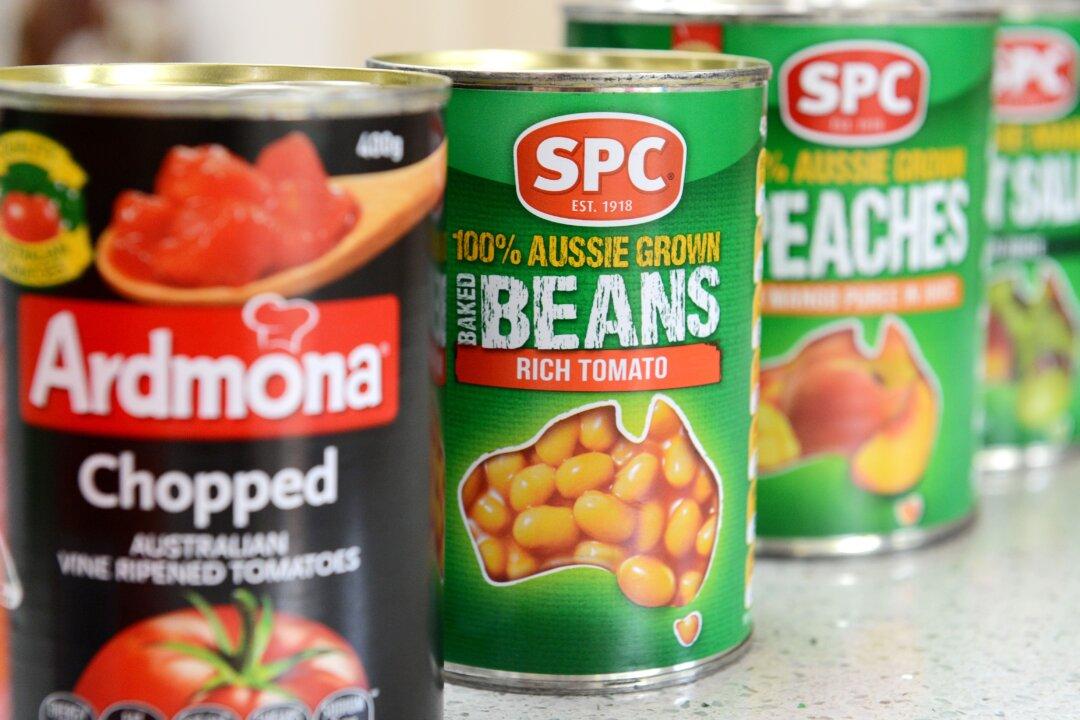Food and vegetable manufacturer SPC is the first Australian company to announce that all staff must be fully vaccinated for the CCP virus by the end of November or be banned from entering any company workplace.
The mandate covers everyone who enters an SPC company space, including all staff—casual and permanent workers and contractors—as well as all visitors.





